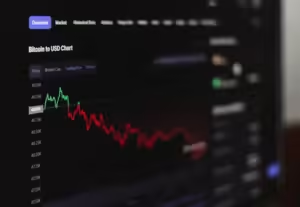Three years ago, the Central Bank of Nigeria (CBN) banned commercial banks from conducting cryptocurrency transactions. Godwin Emefiele, the CBN governor at the time, said, “…a continuation of these opaque activities significantly threatens the safety and soundness of our financial system,” in an appearance before Nigeria’s Senate. This move wasn’t inconsequential. Even though Nigerians leveraged peer-to-peer transactions to keep the market alive, it sent an unfriendly signal to everyone building crypto-based products/services. Since then, the market has been uncertain about how much innovation the Nigerian crypto ecosystem had permission for.

But in December, Emefiele’s successor, Yemi Cardoso, went in a different direction. The CBN now wants to regulate providers of these virtual assets rather than shutting them out. Citing “current global trends,” it lifted the February 2021 ban, permitting banks to resume relationships with crypto trading platforms. However, there’s a caveat: it requires certain conditions, including valid licensing by Nigeria’s Securities and Exchange Commission. Also, banks must set “prudent” transaction limits and not allow cash withdrawals from such accounts.
Cardoso’s move came one month after the Blockchain Association of Kenya (BAK) received parliament’s approval to draft its crypto bill. It’s also
The bill aims to create a regulatory framework for cryptocurrencies and other digital assets in Kenya. It will include provisions on the licensing of companies, consumer protection, anti-money laundering, and terrorism financing.
Why is their stance on crypto changing?
Nigeria and Kenya are strongholds in Africa’s crypto market. Since regulators frowned at them, interest in virtual tokens has only risen in both countries. Only 2.3% of the value of global crypto transactions from July 2022 to June 2023 came from Sub-Saharan Africa, as per blockchain analysis firm Chainalysis. But that share was worth $117 billion, and Nigeria was the top source, ranking second on Chainalysis’ global crypto adoption index. Nigeria’s annual growth in crypto transaction volume by mid-2023 was 9%, only exceeded by Saudi Arabia and Vietnam. Last year, Consensys ran a survey that showed nine out of ten Nigerians wanted regulations protecting crypto investors.
MALIC
Views: 4




